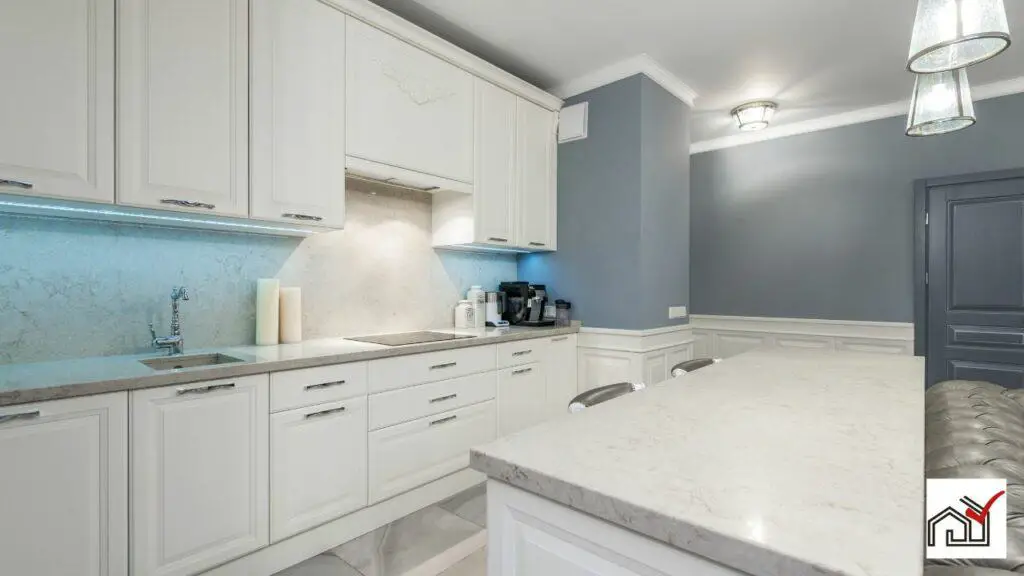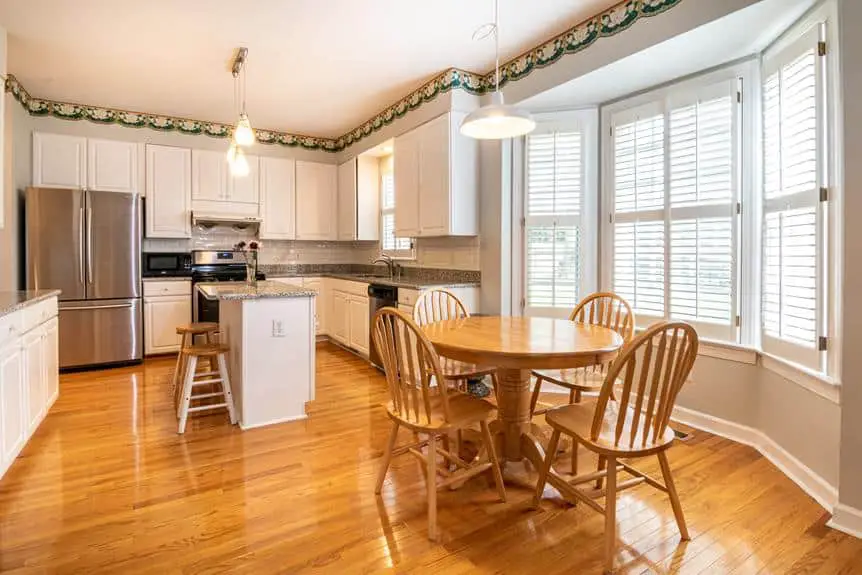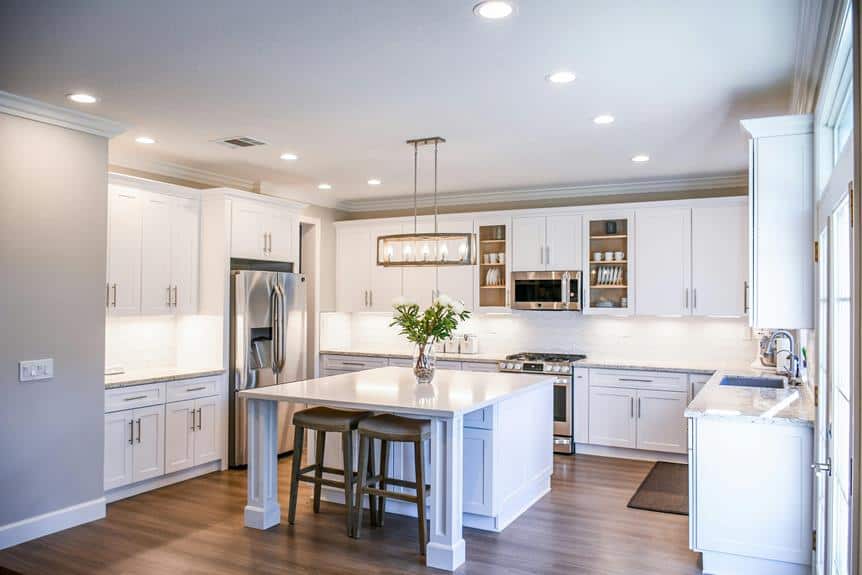Kitchen counters are typically 36 inches high, which is comfortable for most adults and supports a variety of cooking tasks. However, height can be adjusted to fit individual needs, including compliance with the Americans with Disabilities Act, which may require lower countertops for wheelchair access.
Counter height is also a consideration for home resale value, so decisions should balance personal ergonomics, legal requirements, and potential future sale factors.
Understanding Standard Counter Height
The standard height for kitchen counters is 36 inches above the floor, which is designed for the average adult's comfort. This height is recommended by National Standards to ensure kitchens are functional and accessible. It helps reduce strain during food preparation by preventing unnecessary bending or stretching.
Although 36 inches is the typical height, some custom kitchen designs may alter this to fit the homeowner's needs or design preferences. However, excessively altering this height can affect the kitchen's usability for others.
Adjustments to counter height should be carefully considered, as they can impact the home's resale value. Counters that are not at the standard height might need to be modified by future buyers, potentially lowering the home's marketability.
Following the standard counter height is beneficial for ergonomics and can help maintain a home's value.
The Importance of Ergonomics
Ergonomically designed kitchen counters are important for reducing physical strain and increasing comfort during cooking. The typical counter height is around 36 inches, matching the average adult height to prevent bending or stretching, which can lead to back pain or injuries. Ergonomics aims to create spaces that are both functional and suited to the user's needs.
However, the standard height does not fit everyone. In bathrooms, taller comfort height vanities show a trend towards personalized ergonomics. Kitchen counters can also be customized for those in wheelchairs or of different heights. An incorrect counter height can cause discomfort or injury.
When adjusting kitchen counters, it is important to consider building codes and accessibility laws, as well as the needs of potential future buyers. A height range of 30 to 42 inches accommodates users from 4.6 to over 6 feet tall. Choosing the right counter height involves balancing personal ergonomic needs with functionality and legal requirements.
Accommodating Varied Heights
Designing kitchen spaces requires consideration of different user heights to ensure comfort and functionality. Standard kitchen countertops are typically 36 inches high, but this height does not suit everyone. Custom cabinets and countertops are becoming more popular to accommodate various heights.
Countertops around 30 to 33 inches high may benefit shorter individuals by providing a comfortable work surface without the need for overreaching. For those over 6 feet tall, a countertop height of 39 to 42 inches, or slightly more, may help avoid back strain.
Customizing kitchen heights not only enhances comfort but also allows the kitchen to adapt to users' changing needs, such as children growing up or adults facing mobility issues. In commercial settings, countertop heights may reach up to 45 inches due to building codes and accessibility laws.
The aim is to create kitchen spaces that are inclusive and practical for everyone, regardless of height.
Counter Height and Accessibility
Kitchen counter heights should meet the needs of all users, including those with disabilities. The typical height of 36 inches suits the average adult but may not be suitable for everyone, such as wheelchair users. For better accessibility, counters might be lowered to 30-34 inches to provide knee space.
The 36-inch height is based on average body measurements. In accessible kitchen design, the needs of the household should guide the height and features of counters. Adjustable heights can accommodate users of different statures and abilities.
For resale, a standard height is often preferred as it may appeal to more buyers. Custom heights could affect resale value. A balance between personalization and broad market appeal is important.
Impact on Resale Value
Maintaining standard counter height is important for home resale value. The typical height of about 36 inches is expected by homebuyers. A correctly sized kitchen island, especially with quartz countertops, can enhance a home's appeal in the market. Yet, custom heights may appeal to certain buyers but could also discourage others, possibly leading to extra costs for modifications.
Counter Height Customization Tips
Customizing counter height should meet the user's ergonomic needs while keeping the kitchen's look consistent. The ideal counter height ranges from 30 to 42 inches, depending on the user's height. Shorter individuals may prefer counters between 30 to 33 inches, while those over 6 feet might benefit from counters between 39 to 42 inches.
For wheelchair accessibility, counters should be 31 to 34 inches high. These adjustments should fit well within the kitchen's design. Higher counters might need taller cabinets, and adjustable sections can suit users of different heights.
It's important to follow design standards when customizing counters to ensure functionality and maintain the kitchen's aesthetic. Properly customized counters should be comfortable and visually appealing.





